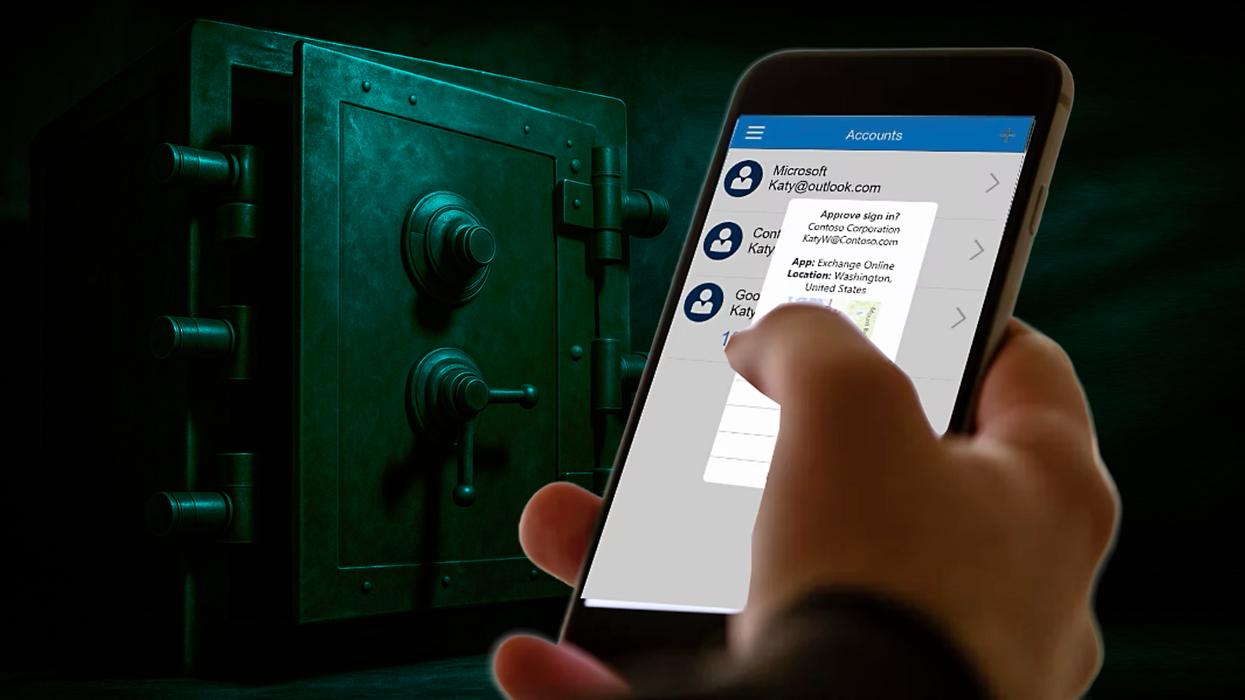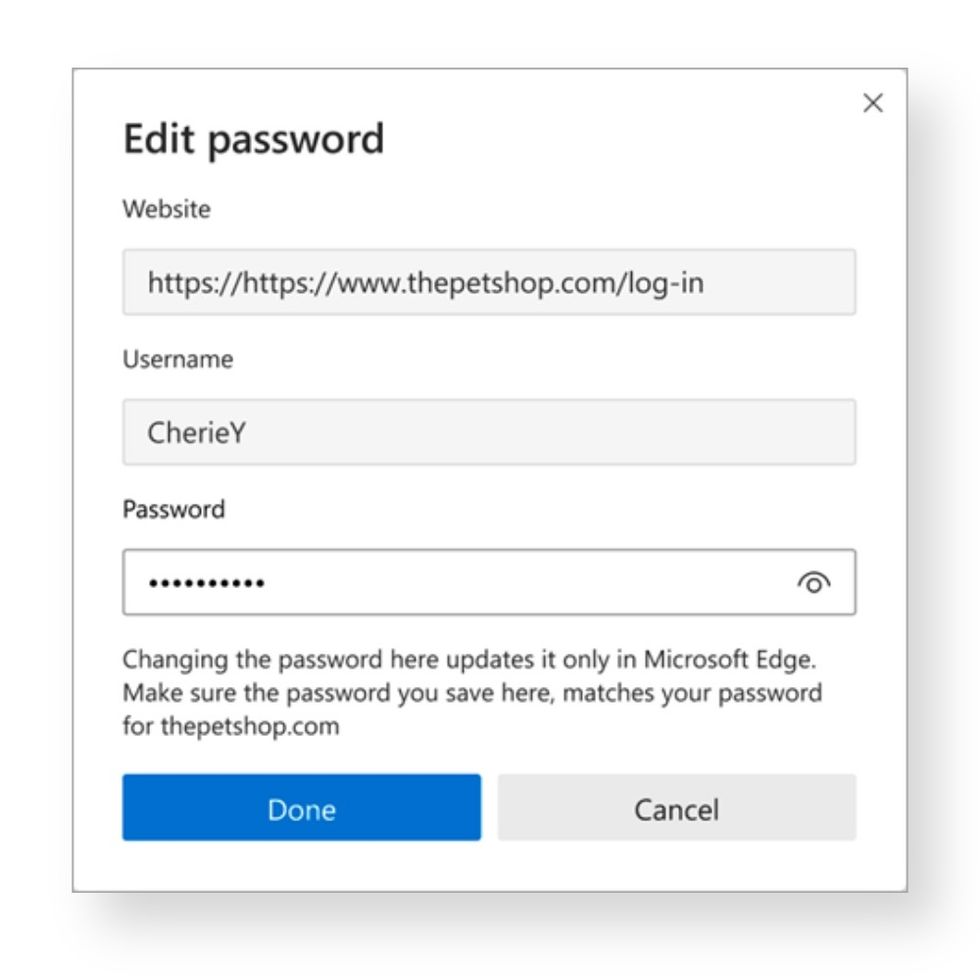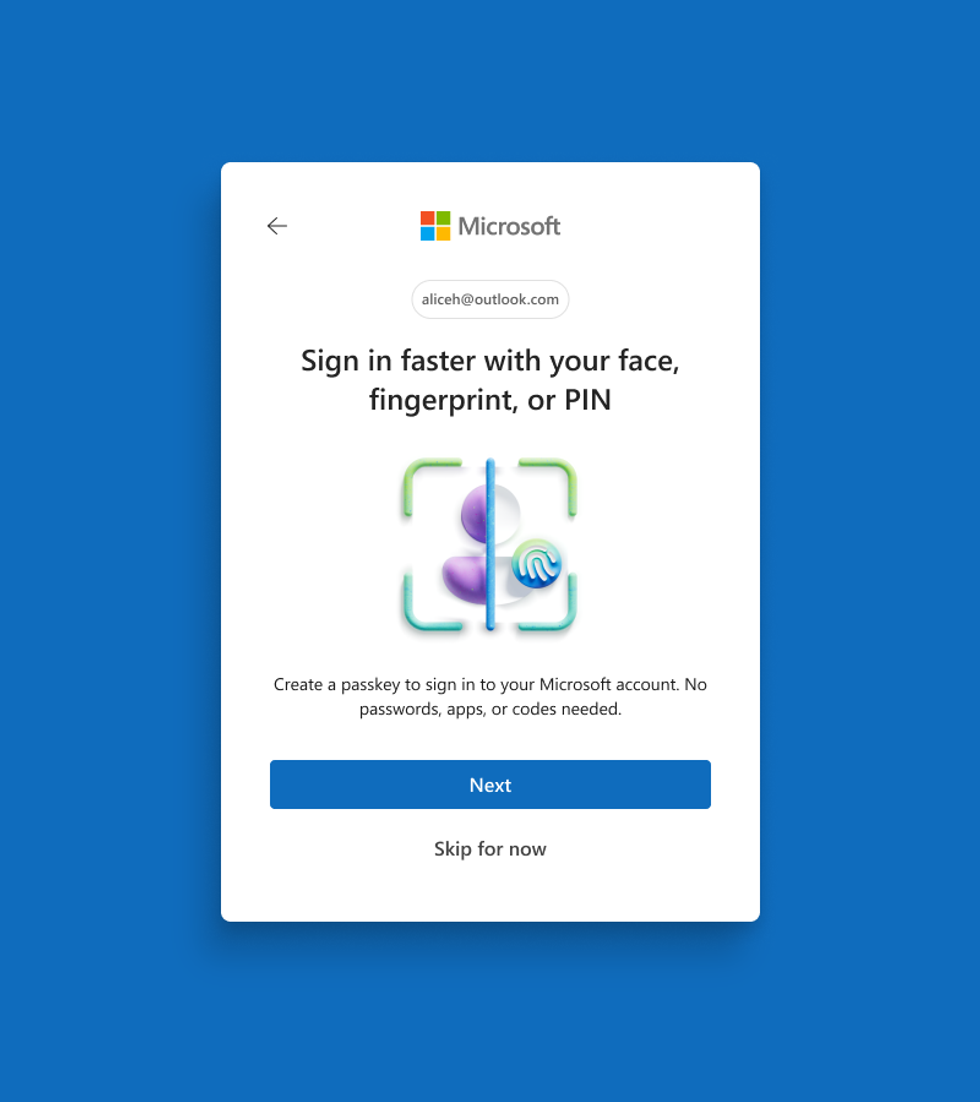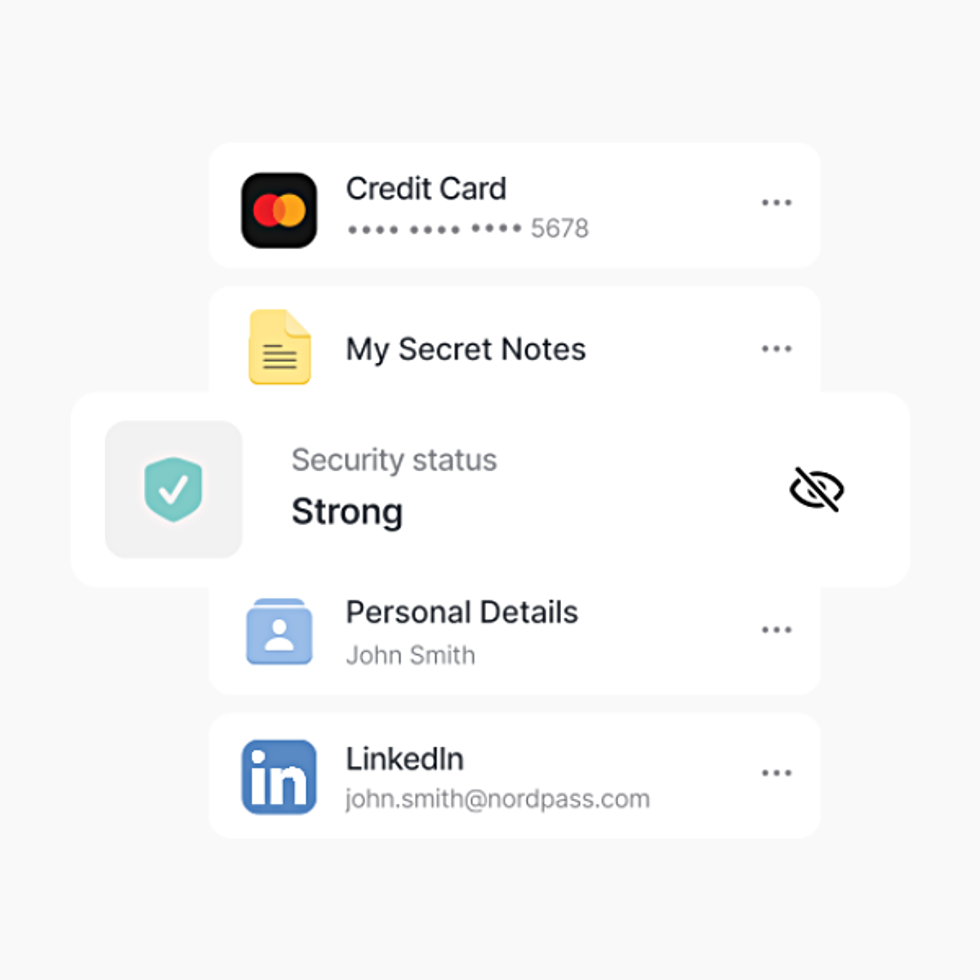Microsoft will start DELETING your passwords from today, and there's only one way to save them

Microsoft Authenticator has already stopped its 75 million users from storing new passwords or payment details in the app, and now, your existing login details will be wiped
|MICROSOFT PRESS OFFICE | SORA | GB NEWS

All products and promotions are independently selected by our experts. To help us provide free impartial advice, we will earn an affiliate commission if you buy something. Click here to learn more
There's a chance your passwords could be saved in another Microsoft app
- Microsoft Authenticator stopped saving new passwords back in June
- Autofill functionality was scaled back throughout July
- And now, Microsoft is deleting existing passwords from the security app
- Any unsaved passwords generated within Authenticator will also be wiped
- Microsoft Authenticator has 100 million downloads on Android alone
- There's a chance your existing passwords will be available elsewhere
Don't Miss
Most Read
Latest
Microsoft has started to delete all passwords saved in its Authenticator app — and if you want to make sure you're not locked-out of your favourite websites and apps, there's one way to save your previous logins.
It might seem a little extreme, but the decision to start wiping passwords from its users has been months in the making. Microsoft has been slowly winding down Microsoft Authenticator, a free mobile app developed by Microsoft for Android and iOS that lets you securely sign-in to online accounts using two-factor authentication (2FA) or passwordless logins.
It's often used by business or school accounts to ensure that a password alone won't unlock your account.
Microsoft stopped users from saving new passwords to the Authenticator app back in June, before deleting any saved credit card details kept within the app last month. And now, the Redmond technology firm has moved ahead with the final step — deleting the passwords saved within the iOS and Android app.
With the data removed, Microsoft Authenticator will lose the ability to autofill usernames and passwords in browsers and mobile apps. Similar to popular password managers like Apple Passwords, 1Password or LastPass, until very recently, this nifty feature has allowed you to login to apps and online accounts with a single tap.
After verifying your identity with a quick fingerprint or facial scan, Microsoft Authenticator would save you the hassle of typing out complex passwords that use lowercase and uppercase letters, numbers, and symbols — filling all of the required details in a split second. It was designed to incentivise users to turn to longer, more complicated passwords.
Need to retrieve your passwords? There's only one way to salvage them.

Microsoft has built a pretty robust password manager into its Edge web browser, which competes head-to-head with Google Chrome. Passwords that once resided inside Authenticator will now be synced with Edge
|MICROSOFT PRESS OFFICE
Microsoft has long offered the ability to export passwords from the Settings menu in Authenticator, but following the August 1 deadline, since the passwords themselves have been wiped... there's nothing left to export.
By default, Microsoft will sync any passwords saved in Authenticator with its Edge web browser. If you're looking for a particular password that's been deleted from the security app, chances are, it will be waiting for you in this Google Chrome competitor.
Thankfully, Microsoft Edge makes password management pretty simple. To see what’s saved, click the ellipsis (⋯) at the top right, choose Settings > Profiles > Passwords. Under Saved passwords, hit the eye icon beside any entry and authenticate with your device credentials to reveal your secret code.
To sprint through logins, ensure Offer To Save Passwords is toggled on in the same menu: Edge will remember and autofill your credentials the next time you visit that site. Of course, that's only useful if you want to commit to using Microsoft Edge as your primary browser instead of alternatives like Firefox or Google Chrome.
And it doesn't necessarily help you when logging into an app on Android or iPhone. In those circumstances, you'll need to copy-paste the password from Microsoft Edge to use it elsewhere. For that, head to More actions (⋯) next to its entry and select Copy password, then simply paste it wherever you like.
@gbnews Microsoft has just asked millions of Windows and Xbox users to DELETE their passwords forever... This is why Microsoft is ditching passwords. #Microsoft #Windows #Xbox #Password #Tech #GBNews
Microsoft is pushing ahead with plans to eliminate passwords altogether, so it makes sense to wind down the password manager features baked into Authenticator. But with over 100 million downloads from the Google Play Store alone — the digital storefront used for the majority of Android smartphone owners — Authenticator is a popular choice.
And some experts now believe the move away from traditional passwords is happening a little too fast.
Co-founder of security firm, Keeper Security, Darren Guccione told GB News: "The impending elimination of password support by Microsoft would suggest that the industry is rapidly moving towards a future where passwordless authentication is the norm, however, the data tells us another story.
"Rather than heralding a drastic sea-change, Microsoft’s decision arrives amid a more gradual transformation, one that is still very much in progress. Solutions that can generate and secure traditional passwords remain critical for individuals and organisations alike – even as passwordless authentication becomes more widely adopted across digital systems."
Research conducted by Keeper Security has shown that as many as 40% of all organisations continue to operate with both passwords and passkeys to secure accounts.
"This is more reflective of the current cybersecurity reality – one in which passkeys offer distinct advantages such as resistance to phishing, ease of use and secure public-key cryptography – but in which the infrastructure, user behaviour and systems required for universal adoption are still catching up," added Darren Guccione, Keeper Security CEO.
Steven Furnell, IEEE Senior Member and Professor of Cybersecurity at the University of Nottingham, believes that passkeys aren't widespread enough to justify switching over completely to this alternative security method. He told GB News: "The authentication landscape has evolved, and we now have better options available across many devices and services, with password managers, passkeys, and biometrics all playing their part in reducing the burden and improving protection.
"At the same time, these solutions are far from ubiquitous. Many leading websites still use passwords as the basis for sign-up and it varies whether other options are available or clearly signposted once accounts are set up."

Microsoft Authenticator was designed to become a one-stop-shop for all of your online security, including generating secure passwords, encrypted and storing them, then allowing you to autofill the login details across websites and mobile apps with a single tap
|MICROSOFT PRESS OFFICE
Switching to strong passwords that are unique to each login is one of the easiest ways to bolster your online security. And whatever you do, make sure you're never using one of these passwords for your online accounts.
If you're one of the millions who depend on this service, act now to avoid losing access to your stored credentials.
If you missed the memo about Microsoft Authenticator, this is a rough timeline of the decision to wind down its password management functionality.
- June 2025 | You can no longer save new passwords in Microsoft Authenticator
- July 2025 | Autofill feature will stop working, preventing you from relying on Microsoft Authenticator to fill-in username / email address, passwords and login across websites and mobile apps. At the same time, save payment information including credit card details will be deleted from the app
- August 2025 | The final stage in the shake-up, Microsoft will permanently remote saved passwords — with any generated passwords not previously saved to a specific account also deleted
Microsoft has added a warning banner to the app stating: "Autofill via Authenticator ends in July 2025. You can export your saved info (passwords only) from Authenticator until Autofill ends." The Redmond-based company emphasises that payment data will not automatically transfer, so you'll need to manually re-enter your details.
About to lose your stored passwords in Authenticator? Switch to award-winning 1Password for FREE

The award-winning 1Password is designed to generate and store unguessable passwords as well as passkeys in an encrypted vault. Available across all of your devices, including iPhone and Android, Windows and Mac computers, iPad and other tablets — it's designed to make logging in as simple as the tap of a button. Its built-in WatchTower feature warns about data breaches that impact you. 1Password is currently free to test for 14 days with no obligation to subscribe
1Password
$2.99
$0
Password managers like Authenticator work by encrypting and storing your login details, then automatically filling them in when you visit websites or apps. This eliminates the need to remember dozens of different passwords whilst maintaining security.
This popular category of applications offer features like cross-platform synchronisation, apps for multiple web browsers and devices, encrypted storage for your login credentials, and automatic breach monitoring.
Some of these apps let you temporarily share login details with friends and family. Software licences and Wi-Fi network passwords can also be stored in some of these services.
Karolis Arbaciauskas, head of business product at NordPass, said: "Microsoft's decision to phase out password management from Authenticator represents a significant shift in the company's approach to digital security. It seems like Microsoft is simplifying credential management across different devices and bringing password management logic closer to the market-dominant model, which is already familiar to many users.”
“In addition, the company has a chance to increase the popularity of its browser. In theory, it’s a win-win situation. But people have various personal likes and dislikes, are often used to a particular ecosystem or a browser and may not wish to move.
"In that case, a dedicated password management solution might be a good idea since it can provide cross-platform synchronization across multiple browsers and devices, secure storage for credentials, and features like breach monitoring and encrypted sharing,” Arbaciauskas added in a chat with Techradar Pro.
While Microsoft Edge will now replicate all of the same password features previously found in Microsoft Authenticator, the US company wants to eventually move its users away from passwords altogether.
Earlier this year, Microsoft confirmed that it was blocking 7,000 attacks on passwords every second — almost double from a year ago. As a result, it has decided to making all new accounts passwordless by default. Instead of being asked to think of a secure password with a mixture of lowercase and capital letters, numbers, and symbols — you'll be guided to set up a passkey when you create a new Microsoft account.
 Starting this month, passkeys will be suggested as the default way to secure your Microsoft account for all new users ...existing users will need to take action to move away from passwords | MICROSOFT PRESS OFFICE | GBN
Starting this month, passkeys will be suggested as the default way to secure your Microsoft account for all new users ...existing users will need to take action to move away from passwords | MICROSOFT PRESS OFFICE | GBN LATEST DEVELOPMENTS
- Netflix will be blocked on some Fire TV Sticks tomorrow
- Sky unleashes 'lowest prices' on broadband and TV
- Blockbuster upgrade coming to Samsung Galaxy, but only if your phone is on THIS list
- Best VPN deals
Passkeys have long been hailed as the harbinger of doom for traditional passwords.
Developed by the FIDO Alliance — an industry body with the aim of helping to "reduce the world’s over-reliance on passwords" with the likes of Apple, Google and Microsoft amongst its members, passkeys rely on the biometrics built into your devices.
Using the same facial recognition or fingerprint scan that can unlock your iPhone, iPad, Android phone or tablet, Windows PCs... the device already in your hands can now verify your identity for websites and apps.
This removes the need for a separate password for each account. Given the weak passwords still used by millions of Britons, this shift should reduce the number of hacks.
Save 50% on NordPass password manager

NordPass is a secure password manager that works across your favourite devices, including iPhone and Android, Windows and Mac computers, iPad and other tablets ...it will evaluate your password strength, autofill login details for you, and warn about any data breaches on the Dark Web that impact you. It's a one-stop-shop to improve your online security and fightback against hackers from the team behind the award-winning NordVPN
NordPass
$2.39
$1.19
More From GB News










